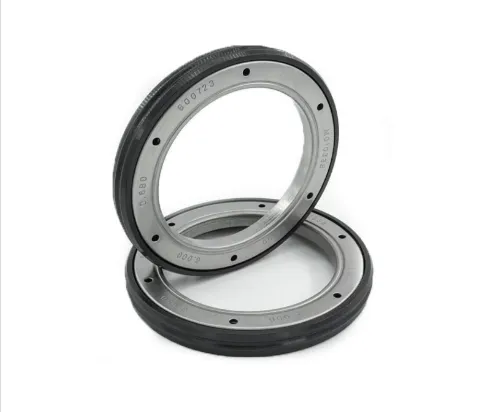radial oil seals
The Importance of Radial Oil Seals in Mechanical Systems
Radial oil seals play a crucial role in the functionality and longevity of mechanical systems across various industries. They are essential components designed to contain lubricants, prevent the ingress of contaminants, and protect machinery from wear and tear. Understanding the significance of radial oil seals, their construction, applications, and maintenance can greatly enhance the performance of machinery and reduce operational costs.
Understanding Radial Oil Seals
Radial oil seals, often referred to as lip seals, are designed to fit into a housing and seal around rotating shafts. Their primary function is to keep lubricants in and contaminants out, which is vital for the proper functioning of machinery. Typically made from materials such as rubber, elastomers, or thermoplastic, these seals are engineered to withstand varying temperatures, pressures, and chemical exposures.
The seal consists of several components, including a sealing lip, a multi-spring design for adequate tension, and an outer casing that fits snugly into the housing. The lip is the most critical part as it creates the sealing interface with the shaft. When installed correctly, the lip makes contact with the rotating shaft, effectively preventing the escape of oil while blocking dust, dirt, and other contaminants.
Applications of Radial Oil Seals
Radial oil seals find applications in a myriad of industries, such as automotive, aerospace, and industrial machinery. In automotive applications, they are commonly used in engine components, transmissions, and differential housings. Their ability to prevent oil leaks and protect critical engine parts is vital for maintaining the vehicle's efficiency and performance.
In the aerospace industry, radial seals are used in jet engines and hydraulic systems, where they endure extreme temperatures and pressures. The reliability of these seals is paramount, as any failure can lead to catastrophic results. Similarly, in industrial machinery, these seals are utilized in gearboxes, pumps, and conveyors, where they contribute to the overall efficiency and reliability of the equipment.
radial oil seals

Advantages of Radial Oil Seals
The advantages of radial oil seals are multifaceted. They are cost-effective solutions that significantly reduce lubricant loss and maintenance needs. By preventing leaks, these seals help maintain optimal operating conditions within machinery, consequently extending the lifespan of components.
Moreover, radial oil seals are designed to be resistant to a variety of environmental factors. They can withstand harsh conditions, such as extreme temperatures and exposure to chemicals, which is critical for applications in corrosive environments. This durability ensures that machinery operates smoothly, reducing the likelihood of unexpected breakdowns and costly repairs.
Maintenance and Replacement
Proper maintenance of radial oil seals is essential for their effectiveness. Regular inspections should be conducted to detect any signs of wear or damage. Signs such as oil leakage or visible cracks around the seal are indicators that replacement is necessary. Timely replacement of worn seals is vital to prevent more severe damage to the machinery and to maintain operational efficiency.
When replacing radial oil seals, it is crucial to select the right type and size for the specific application. Using the appropriate seal will ensure optimal performance and longevity. Additionally, proper installation techniques must be followed to avoid damaging the seals during the installation process. Misalignment or excessive force can compromise the sealing function, leading to premature failure.
Conclusion
In conclusion, radial oil seals are indispensable components in mechanical systems, providing essential sealing functions that protect and enhance the performance of machinery. Their robust design and versatile applications make them critical in various industries. By understanding their importance, ensuring proper maintenance, and making informed choices during replacement, industries can optimize the efficiency and lifespan of their machinery, ultimately leading to reduced costs and enhanced productivity. The continued innovation in seal technology will further improve the performance and reliability of these vital components, making them even more integral to the machinery of the future.
-
Simplifying Oil Changes: A Comprehensive Guide to Oil Drain Plugs and Their Variants
News Aug.04,2025
-
Mastering Oil Drain Maintenance: Solutions for Stripped, Worn, and Upgraded Oil Plugs
News Aug.04,2025
-
Fixing Oil Pan Plug Issues: Leaks, Stripped Nuts, and the Right Replacement Solutions
News Aug.04,2025
-
Everything You Need to Know About Oil Drain Plugs: Sizes, Fixes, and Upgrades
News Aug.04,2025
-
Choosing the Right Oil Drain Plug: A Guide to Sizes, Materials, and Drain Innovations
News Aug.04,2025
-
A Complete Guide to Automotive Drain Plugs: Types, Problems, and Innovative Solutions
News Aug.04,2025
-
The Ultimate Guide to Car Repair Kits: Tools and Essentials Every Driver Should Own
News Aug.01,2025
Products categories















